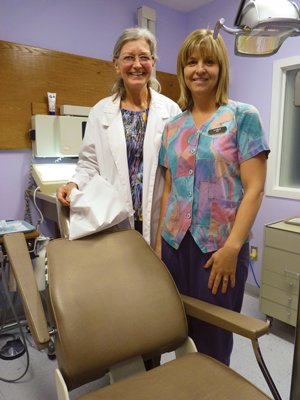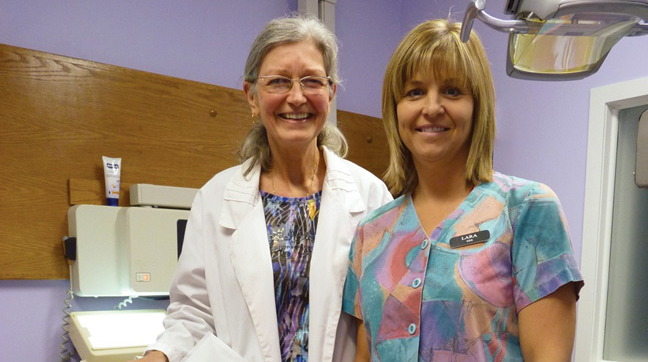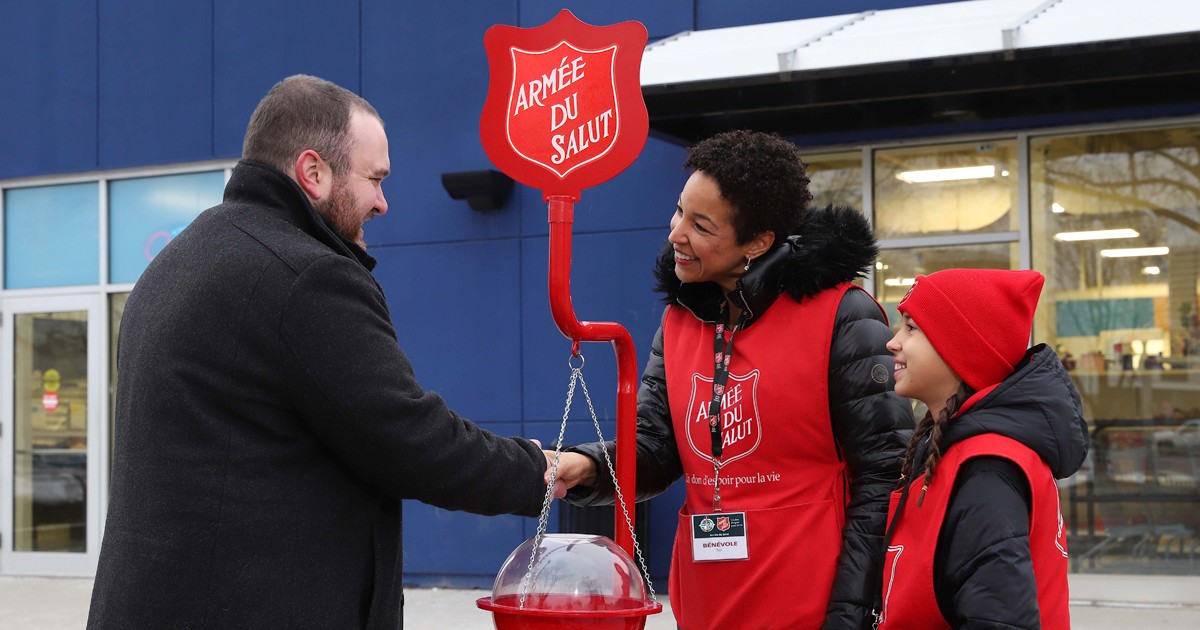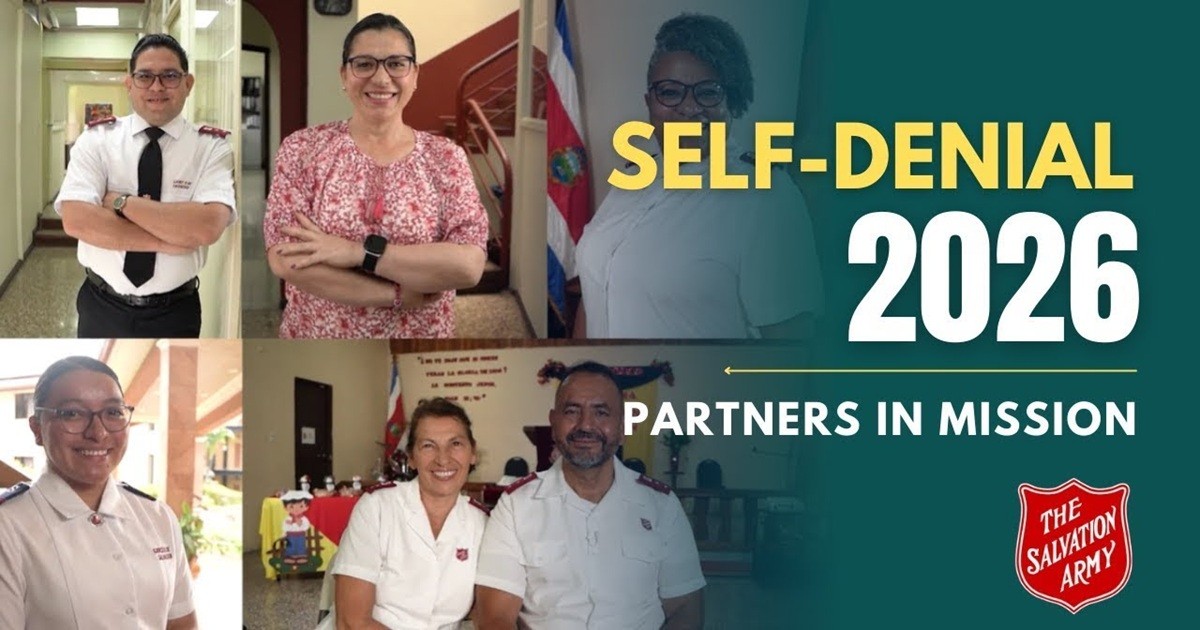 Dr. Dale Sellars and Lara Kahl, dental assistant, volunteer their services at Mouth Minders, a free Salvation Army dental clinic (Photo: Cranbrook Daily Townsman)
Dr. Dale Sellars and Lara Kahl, dental assistant, volunteer their services at Mouth Minders, a free Salvation Army dental clinic (Photo: Cranbrook Daily Townsman)
Many people dread a visit to the dentist, but not Paulette Dallaire.
“I was jumping all over the place because I was coming to see the dentist,” says Dallaire. “I was so happy to have my teeth fixed.”
Until she visited the free dental clinic at The Salvation Army in Cranbrook, B.C., this past November, she had not been to a dentist in 13 years. Her long absence had nothing to do with whether she wanted to look after her teeth—Dallaire simply could not afford to go.
“If you have no money, you let your teeth go,” she says. “It's a miracle to have this clinic, to be able to see a dentist and not have to worry about how much it's going to cost.”
The Salvation Army's Mouth Minders clinic opened in October with one dentist, one dental hygienist and three dental assistants volunteering their services. The idea for a free dental clinic was developed by hygienist Nancy Sazarie, who also works for the B.C. Interior Health Authority, and semi-retired dentist Dr. Dale Sellars, who together proposed the clinic to Captain Kirk Green, corps officer, Kootenay Valley Community Church. They originally saw the clinic as part of a new multi-million-dollar Army facility that is currently in development in Cranbrook. “I said, 'Why not start now?' ” says Captain Green.
The clinic is the first Salvation Army-owned and operated dental clinic in Canada. It is housed in a converted Sunday school room at Kootenay Valley Community Church and is modelled after a similar clinic at the Kelowna Gospel Mission in Kelowna, B.C.
To get the clinic up and running, a local retired dentist donated some large items, including a chair and an X-ray unit, a dental supply company in Calgary donated other items, and The Salvation Army purchased the rest. Funding for supplies and renovations came from Columbia Basin Trust and Pacific Blue Cross.
Based on the experience of the Kelowna Gospel Mission, Captain Green expects that Mouth Minders will have 360 patient visits in its first year—though that number may increase. Within the first month of the clinic opening, two more dentists had volunteered their services.
“Everyone has been extremely supportive,” says Sellars, whose many years of experience are being put to good use at the clinic.
The need for Mouth Minders is great. The clinic serves not only people on government assistance, such as Dallaire, but also people with low incomes.
“If you're the working poor and you have a choice between putting food on the table for your children or getting your tooth fixed, the tooth will wait,” says Captain Green.
Candice Young, who came to Mouth Minders in October, needed to have three teeth removed, one of which was abscessed. “I couldn't eat or sleep, I could hardly breathe,” she recalls. “It was horrible.”
She visited her regular dentist who told her it would cost $500. “I couldn't believe it,” she says. “That's a whole pay cheque and then some for me.”
Young was at the Army's soup kitchen when she heard about Mouth Minders. Having the teeth removed was “a great experience,” she says. “Everybody was very friendly. I was in, frozen, teeth all pulled and ready to go home within an hour.”
For people who visit Mouth Minders, getting dental work done means more than just having a problem solved; it's about restoring their dignity.
“Not being able to go to the dentist impacts your self-esteem a lot,” says Dallaire. “It keeps you from smiling, and you try not to open your mouth so people don't see how bad your teeth are. But now I can go out and look for work and not be afraid of opening my mouth when I speak.”
At this point, Mouth Minders mainly provides maintenance services, such as teeth cleaning, and pain management, such as extractions, but the clinic hopes to expand into restorative services soon.










HALLO DALE: Thrilled to see your fantastic smile and beautiful soul at work but sorry to hear you no longer gave MW to keep you entertained. I am still living lucky and have 43 years with my Queen Eileen. It has been a singular pleasure remembering you from our UBC days Warm hugs Jack